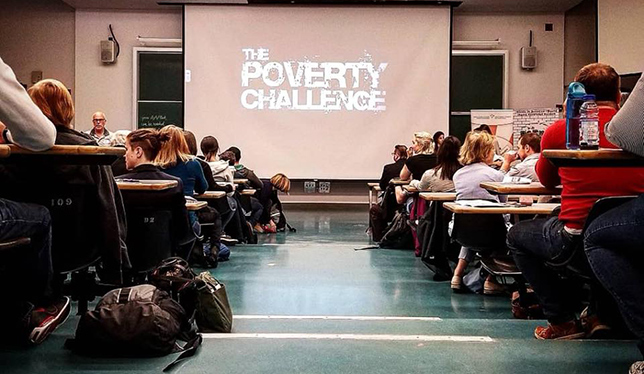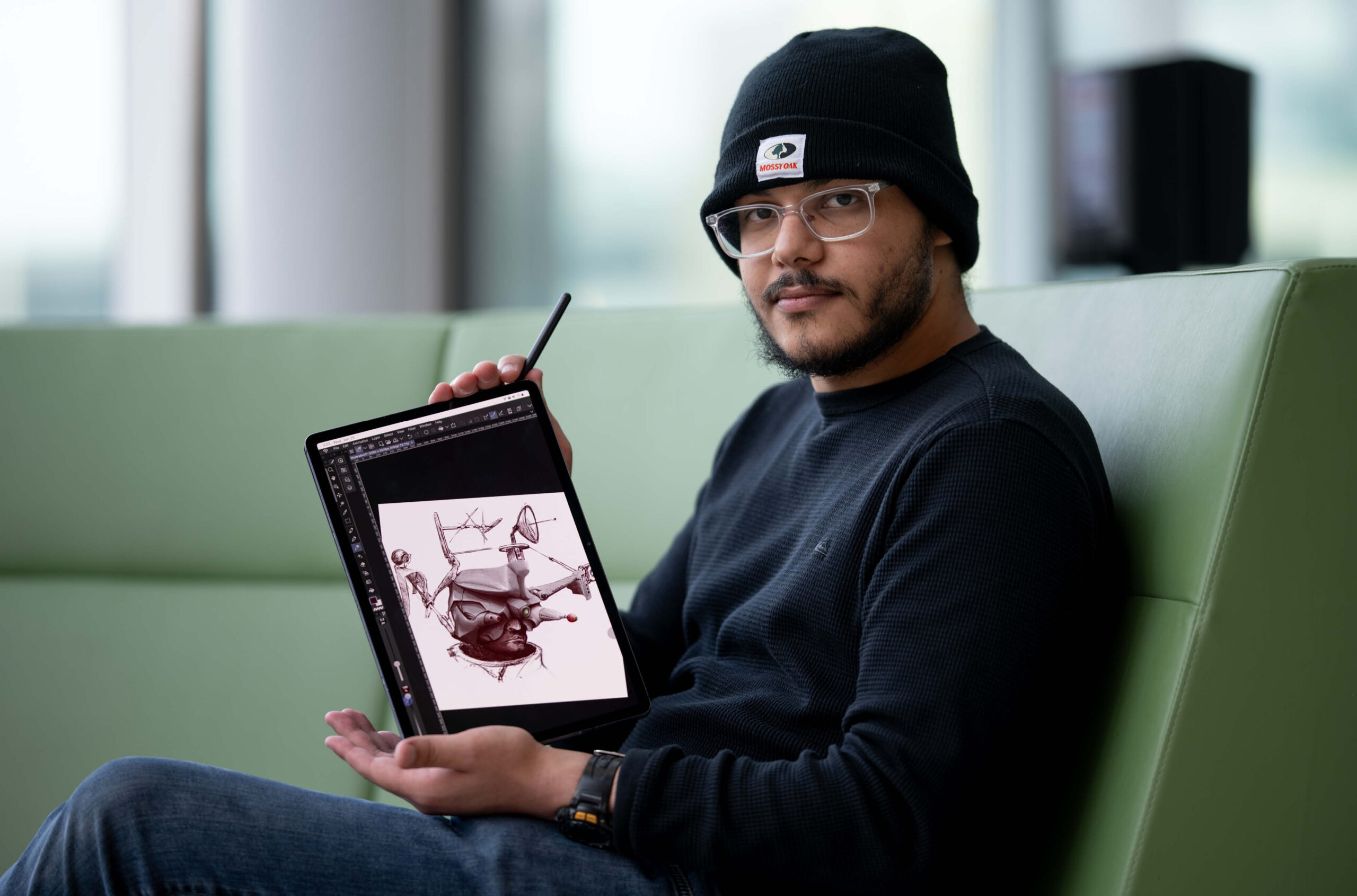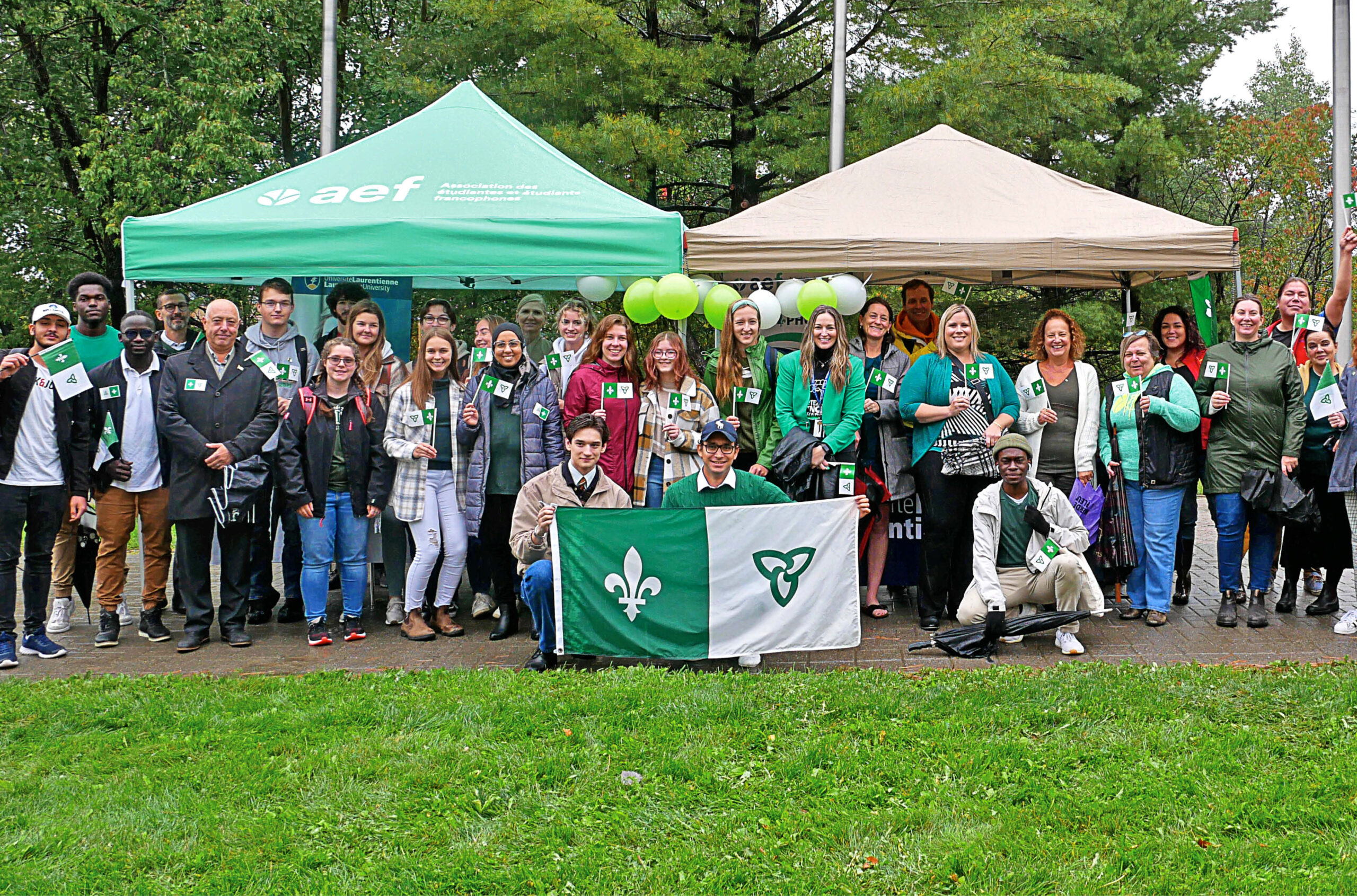A “lesson in humility” at U of Ottawa’s Poverty Challenge
To build empathy and find solutions, civic leaders and service providers were asked to navigate the web of local agencies.

If you are 17-year-old Rachelle, you have already had a tough life. Your mom was a drug addict. You were bounced between various family members and an array of foster homes. Some foster parents were nice, Rachelle recalled. “Some would allow us to have family dinners with them. Some locked the fridge.” Still others were physically and emotionally abusive.
Turning 18 would mean transitioning out of foster care and living on her own – even though, at the time, Rachelle had no savings and no job. But she did have dreams and goals: a college course in hair styling, opening her own salon and caring for two younger siblings in foster care.
So, what’s the first step?
Welcome to the Poverty Challenge, hosted by the University of Ottawa in May in partnership with the university’s Centre for Research on Educational and Community Services (CRECS). Rachelle was one of several real-life profiles handed to civic leaders, policy makers and service providers who were asked to navigate one day in the life of a person experiencing poverty and/or homelessness. Simulated government agencies, support services and bureaus were set up throughout the university campus, and participants were given tasks like finding a shelter or longer-term housing, or applying for a heath card, disability assistance or student loans. Some were sent to a food bank only to find they needed an address to be eligible for food.
Ottawa city councillor Catherine McKenney says being Rachelle for just one day “was a lesson in humility.” Her tasks included checking in with a Children’s Aid Society (CAS) worker, except that the case worker familiar with Rachelle’s file was away. The well-meaning replacement said Rachelle was eligible for funding from CAS and the Ontario Student Assistance Program (OSAP). The OSAP worker disagreed. Ms. McKenney said it was a day spent shuttling between various service agencies, long lineups and red tape.
“The system doesn’t enable someone to walk through a door and get all the services they need in one place,” she said. “You have to go to one agency for funding, another for housing, disability support or social assistance. But you need identification from another agency and that’s going to take a month. But school starts in three weeks. The pieces just never fit together.”
CRECS estimates that there are 235,000 homeless people in Canada. The centre collaborates on research, evaluation and training with educational, health and social service organizations to improve social programs, especially for those facing social exclusion. CRECS co-director, Ruth Kane, called the Poverty Challenge “a powerful, authentic exercise.”
“I think all our teacher education candidates and our medical students should go through the Poverty Challenge,” she said. “Nurses and doctors, because they deal with every member of the population and they could get frustrated; teachers, because they deal with children and there are children living in poverty. To have an ounce of sensitivity means you don’t blame the parents. It allows you to say, ‘How can I as a teacher be more supportive of that child or those parents, to not be so judgemental?’”
Dr. Kane said the Poverty Challenge is about “peeling back the layers” to debunk the myths and the fallacies about poverty and homelessness.
Another Ottawa councillor, Jeff Leiper, assumed the role of Scyndi, who left an abusive home to live under a bridge in downtown Ottawa with an older sister. At 14, she couldn’t access any services other than a youth drop-in centre.
“I cannot imagine the human cost we are imposing when the various parts of that system are not as seamless as possible,” he said. “That for me is a critical takeaway.”
The day-long challenge underscored how “poverty is a full-time job,” said organizer Kaite Burkholder Harris. “We really wanted to show that to literally navigate the system and access the resources you need just for basic survival can take a full day, a full week and in fact for most people within the system, it takes up all of their time to get from service to service, to get the resources they need.”
“At the core of this is empathy,” she continued. “I think even for the service providers that were here, it was a powerful experience. It’s very different to be on the other side where you’re the one feeling powerless, you’re the one stuck in a bureaucracy that doesn’t make sense and you’re unable to get your needs met.”
Featured Jobs
- Psychology - Assistant Professor (Speech-Language Pathology)University of Victoria
- Veterinary Medicine - Faculty Position (Large Animal Internal Medicine) University of Saskatchewan
- Canada Excellence Research Chair in Forest Biodiversity Conservation (Full Professor)University of New Brunswick
- Canada Excellence Research Chair in Computational Social Science, AI, and Democracy (Associate or Full Professor)McGill University
- Business – Lecturer or Assistant Professor, 2-year term (Strategic Management) McMaster University













Post a comment
University Affairs moderates all comments according to the following guidelines. If approved, comments generally appear within one business day. We may republish particularly insightful remarks in our print edition or elsewhere.